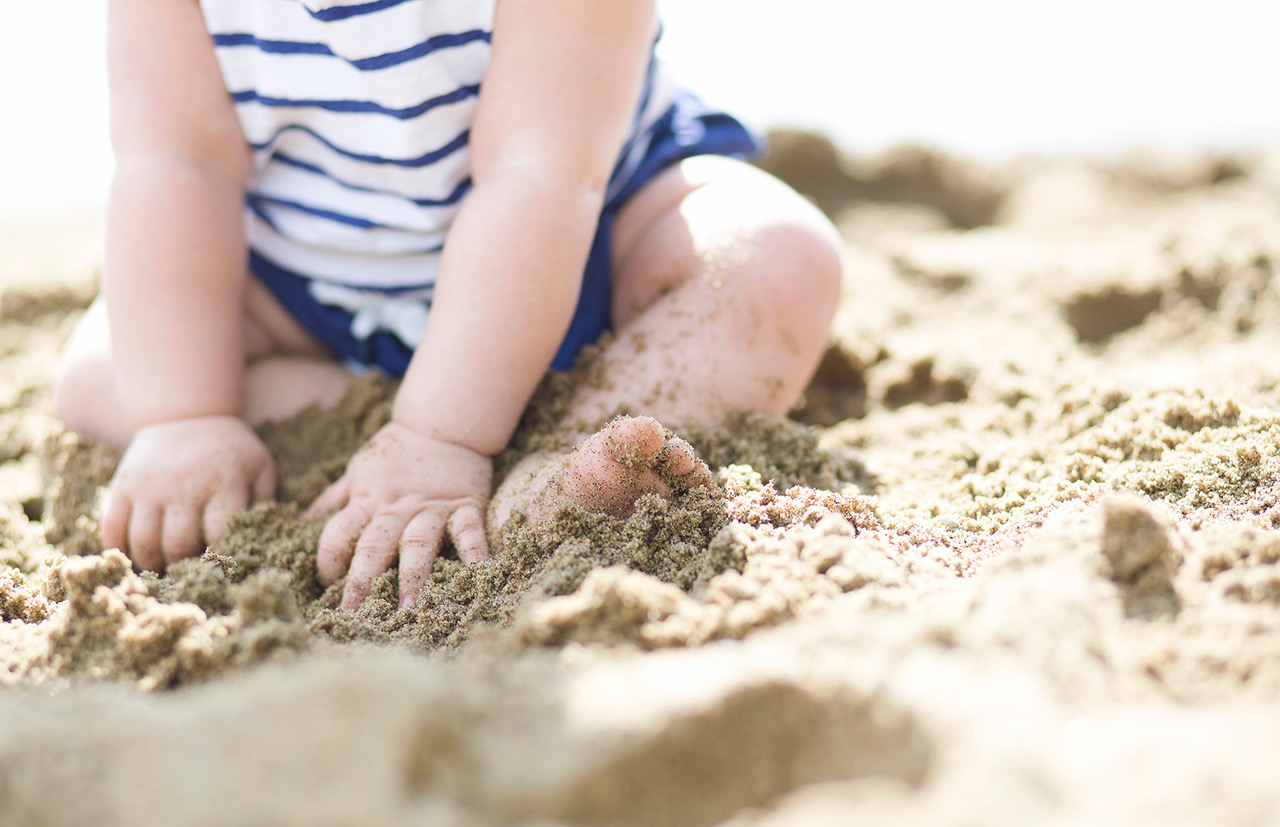Prenato Summer Guide: Infants and Babies Under the Sun
18 June 2019

The risks of high sun exposure are no longer to be taken lightly and are increasingly documented. Babies and children have thinner and more sensitive skin than adults. So they are more sensitive to the sun’s rays. They are also more likely than adults to suffer from sunstroke or dehydration caused by the sun and heat due to their size. The combination of clothing, hat, hydration and sunscreen provides the best protection!
For infants under 6 months of age: Sunscreen (at least SPF 30) can be applied in small amounts, avoiding the eyes and mouth. However, it is still preferable not to expose infants to the sun and to protect them with clothes and a hat. Pay special attention, because even in the shade, a baby’s skin can be exposed to the sun’s rays reflected from the sand and water. Choose a place in the shade, under a parasol or a sun protection tent for your baby.
As for hydration, offer the breast regularly or a formula. It is not necessary to add water during breastfeeding since breast milk contains all the hydration your baby needs.
For children: It is best to protect them at all times with clothing, a hat, sunglasses and sunscreen. Protection with SPF 30 and above is recommended. It should be applied 20 minutes before the child goes outdoors and several times during the day. The nose, ears as well as the top of the feet should not be forgotten! Only the eye area should be avoided. For swimming, a waterproof sunscreen is preferable. In addition, it is necessary to use sunscreen after swimming, even if the one you use is water-repellent. Aerosol sunscreens are not recommended as their coverage can be reduced (areas on the body can be more easily forgotten). Choose clothing that will protect as much skin as possible (hat, covering bathing suit, etc.).
Offer your child regular drinks to maintain good hydration. Snacks such as fruits are also preferred as they will also provide a lot of water.
Remember that heatstroke can happen quickly when the temperature is high. If you notice a mood change, fever, dry skin, abnormal drowsiness or a rapid pulse, it is high time to cool your child’s environment and consult if necessary.


